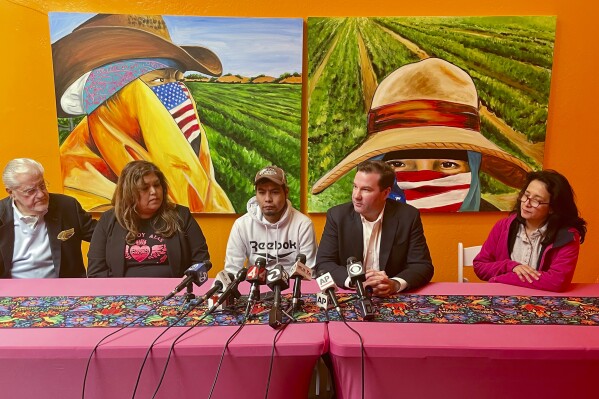California-based 99 Cents Only Stores is closing down, citing COVID, inflation and product theft
SAN FRANCISCO (AP) — California-based 99 Cents Only Stores said Friday it will close all 371 of its outlets, ending the chain’s 42-year run of selling an assortment of bargain-basement merchandise.
The company has stores across California, Arizona, Nevada and Texas that will begin will selling off their merchandise, as well as fixtures, furnishings and equipment.
Interim CEO Mike Simoncic said in a statement that the retailer has struggled for years as a result of the COVID-19 pandemic, changes in consumer demand, inflation and rising levels of product “shrink” — a measure that encompasses losses from employee theft, shoplifting, damage, administrative errors and more.
“This was an extremely difficult decision and is not the outcome we expected or hoped to achieve,” said Simoncic, who will be stepping down. “Unfortunately, the last several years have presented significant and lasting challenges in the retail environment.”
The shuttering of 99 Cents Only Stores comes after fellow discount retailer Dollar Tree last month said it was closing 1,000 stores.
99 Cents Only Stores was founded in 1982 by Dave Gold, who opened its first store in Los Angeles at the age of 50, according to his 2013 obituary in the Los Angeles Times. Gold, who had been working at a liquor store owned by his father, found that marking down surplus items to 99 cents caused them to sell out “in no time,” fueling his desire to launch a new spin on the dollar store.



“I realized it was a magic number,” he told the Times. “I thought, wouldn’t it be fun to have a store where everything was good quality and everything was 99 cents?”
Brushing off doubting friends and family members, Gold forged ahead. His idea caught on quickly, even in middle-class and upscale neighborhoods, allowing the company to go public on the New York Stock Exchange in 1996. It was later sold for roughly $1.6 billion in 2011.
Gold became a multimillionaire but lived modestly. His family told the Times he lived in the same middle-class home for nearly five decades with his wife of 55 years and drove the same Toyota Prius he purchased in 2000.
While the chain initially sold most items priced at 99 cents, in recent decades that became untenable, although the company kept its trademarked name.
Disclaimer: The copyright of this article belongs to the original author. Reposting this article is solely for the purpose of information dissemination and does not constitute any investment advice. If there is any infringement, please contact us immediately. We will make corrections or deletions as necessary. Thank you.



